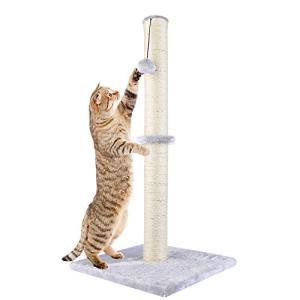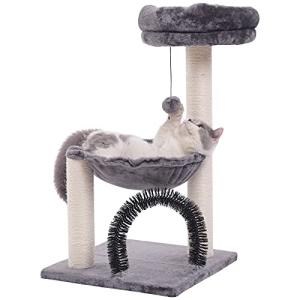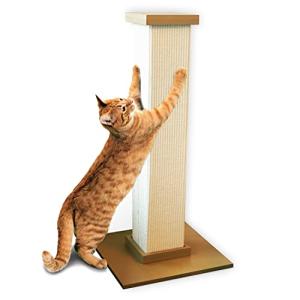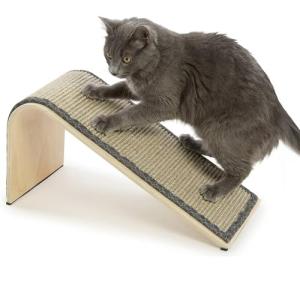Imagine a cat with sapphire-blue eyes that gleam with intelligence, a silky cream coat that flows like liquid moonlight, perfectly contrasting "gloves" adorning their paws, and an aura of ancient serenity that seems to emanate from within. If this image resonates with a longing for a feline companion who is both beautiful and deeply soulful, then the enchanting Birman cat may be the perfect creature to grace your home. Often whispered about as the "Sacred Cat of Burma," the Birman is more than just a stunningly beautiful animal; they are a breed steeped in legend, celebrated for their gentle nature, and cherished as devoted members of the family. This guide is an essential read for anyone who already shares their life with a Birman, or for those who are captivated by their allure and considering welcoming one of these mystical felines into their world. Within these pages, you'll embark on a journey to fully understand the Birman cat, exploring their fascinating origins, distinctive appearance, loving personality, and the practicalities of ensuring they live a happy and fulfilling life by your side.
The Birman cat, often lovingly referred to as the "Sacred Cat of Burma," carries with it a captivating legend that weaves together faith, devotion, and the mystical origins of their unique appearance. The traditional Burmese temple lore tells a tale of the Kittah priests and their revered golden goddess Tsun-Kyan-Kse. The temple cats, all pure white with yellow eyes, were deeply cherished by the priests as companions and guardians. The legend centers around the death of the Grand High Priest, Mun-Ha, who was deeply devoted to Tsun-Kyan-Kse. At the moment of his passing, his beloved white temple cat, Sinh, placed his paws upon his master's head, facing the goddess. In that instant of profound devotion, a miracle occurred. Sinh's white fur transformed to take on the golden hue of the goddess, his yellow eyes deepened to the sapphire blue of Tsun-Kyan-Kse's eyes, and his face, ears, legs, and tail adopted the color of the earth. However, where his paws rested upon his master's white hair, they remained as pure white as a symbol of purity and devotion. These white "gloves" became the sacred hallmark of the Birman breed, forever linking them to this mystical tale of transformation and divine favour. While undeniably romantic and enchanting, it's important to remember that this origin story is primarily a legend, imbued with symbolic meaning and adding to the breed's mystique rather than representing documented historical fact. It’s a captivating narrative that enhances the Birman's allure and underscores the reverence with which they are often held.
Delving into more grounded history, the Birman's more probable origins trace back to France in the early 20th century. While the exact details remain somewhat shrouded in the mists of time, it is believed that the Birman breed was developed in France, with some accounts suggesting that a pair of temple cats were brought from Burma (now Myanmar) to France, possibly as a gift. While concrete documentation is scarce, it’s speculated that early Birman development likely involved crosses with Persian and Siamese cats. Persian ancestry could explain the Birman's semi-longhair coat and sturdier build, while Siamese lineage might account for the colorpoint pattern, although the Birman’s colourpointing is uniquely expressed and distinct from the Siamese pattern. Regardless of the precise genetic recipe, French breeders are credited with establishing the Birman as a distinct breed, meticulously refining their type and solidifying their unique characteristics. The Birman was officially recognized as a breed in France in 1925, marking a significant milestone in their formal development and recognition within the cat fancy. From France, the Birman's popularity gradually spread to other parts of the world, including the United Kingdom and the United States. Breed standards were developed and refined by various cat registries internationally, further solidifying the Birman's breed characteristics and guiding breeders in their efforts to maintain the breed's unique beauty and temperament. Understanding this blend of captivating legend and more tangible European history provides a richer appreciation for the Birman cat, acknowledging both their mythical charm and the dedicated efforts of breeders who shaped them into the cherished breed we know today.
The Birman cat is a visual masterpiece, a harmonious blend of soft elegance and striking contrasts, immediately recognizable and utterly captivating. Their semi-longhair coat is a defining feature, luxurious and flowing, yet surprisingly manageable. The texture is pure silk – soft, smooth, and wonderfully tactile. While the coat is of a medium length and flows gracefully, it is not as thick and dense as a Persian’s coat, making it considerably less prone to matting and tangles. This is a significant advantage for Birman owners, as it reduces the intensive grooming commitment often associated with long-haired breeds. Contributing to this manageable texture is the Birman's lack of a dense undercoat. The absence of this thick underlayer means the coat is lighter, airier, and less likely to develop knots, making regular brushing a relatively straightforward task.
The hallmark of the Birman, the feature that truly sets them apart and solidifies their legendary status, is their distinctive colorpoint pattern combined with the pure white "gloves" on their paws. The colorpoint pattern is, like in Siamese and Himalayans, characterized by darker coloration on the "points" – the face mask, ears, legs, and tail – contrasted against a lighter body color, which is typically a luminous creamy white to pale gold. However, the Birman’s points are softer and richer in tone than those of a Siamese, contributing to their gentler overall aesthetic. But it is the "gloves," also known as "socks," that are the absolute defining characteristic of the breed. These are markings of pure, unblemished white fur that adorn their paws. On the front paws, the white gloves should ideally reach to the second joint, creating neat, even "socks." On the back paws, the white extends much higher, reaching up the back of the legs and ideally terminating in a point, often referred to as "laces," extending up the hock. These symmetrical, pure white gloves are considered essential to the Birman breed standard and are a testament to the breed's unique genetic makeup. Breeders strive to produce kittens with perfectly gloved paws, as these markings are a hallmark of breed excellence.
Beneath their flowing coat, the Birman possesses a body that is both sturdy and elegant. They are classified as medium-large cats, exhibiting a muscular and well-boned build that conveys a sense of strength and robustness. Despite their substantial physique, they maintain an overall elegance and balance, avoiding any impression of being bulky or clumsy. Their bodies are well-proportioned, with a balanced length and a sturdy frame that speaks to their overall soundness. They are not as "cobby" or rounded as Persians, nor are they as slender and angular as Siamese; they occupy a pleasing middle ground, combining substance with grace. Adding to their captivating gaze are their sapphire blue eyes. Deep, intense sapphire blue eyes are a breed standard requirement and are a crucial element of the Birman's enchanting appearance. The ideal eye shape is oval, with a slightly slanted set that lends to their expressive and intelligent look. The deep blue hue is strikingly beautiful against their creamy coat and contrasting points, contributing significantly to their gentle and soulful expression. Completing their distinctive facial features is their "Roman nose," a subtly rounded nasal bridge that is less flat-faced than some Persian lines but distinct from the straight profile of a Siamese. Their muzzle is rounded and softly contoured, and their chin is well-developed, contributing to a balanced and pleasing facial structure. Their ears are medium-sized, set moderately wide apart on their head, and taper to slightly pointed tips, adding a touch of alertness and refinement to their overall gentle demeanor. In essence, the Birman’s distinctive look is a carefully orchestrated symphony of soft fur, contrasting colours, and mesmerizing blue eyes, all underpinned by a sturdy yet elegant physique, making them truly unforgettable feline companions.
Living with a Birman cat is to share your life with a gentle soul, a creature of calm grace, unwavering affection, and delightful sociability. They are renowned for their exceptionally gentle and calm demeanors, making them wonderfully adaptable companions in a variety of home environments. Their good-natured and relaxed disposition is a hallmark of the breed. Birmans are generally quiet cats, not prone to excessive vocalization or demanding behaviours. They are content to observe the world around them with a serene and peaceful presence, creating a calming atmosphere in the home. Their gentle nature makes them excellent companions for individuals seeking a tranquil feline friend, as well as families with children and multi-pet households.
Despite their calm outward demeanor, Birmans are deeply affectionate and people-oriented cats. They thrive on human companionship and form strong, loving bonds with their families. They are not aloof or independent creatures; they actively seek out interaction and affection from their owners. Birmans have a profound desire to be near their beloved humans, often following them from room to room, wanting to participate in daily life and be included in family activities. They are frequently described as "dog-like" in their loyalty and devotion, exhibiting a level of attentiveness and attachment that is deeply endearing. Their affection is often expressed through gentle nudges, soft purrs, and a constant, comforting presence nearby. Their sociable nature extends beyond their human families; Birmans are generally excellent with children of all ages. Their gentle and patient temperament makes them tolerant of children's playful interactions, provided they are treated with respect and kindness. They are often described as being wonderfully patient and accepting companions for children, thriving in family environments where they receive ample love and attention. Similarly, Birmans typically get along well with other cats and even cat-friendly dogs. Their adaptable and social nature makes them well-suited to multi-pet households, where they often integrate seamlessly into the existing family dynamic. Early socialization further enhances their ability to coexist peacefully and playfully with other animal companions.
While Birmans are not known for being hyperactive, they do possess a playful side and enjoy engaging in games and interactive play. They appreciate toys and will participate in gentle chasing, batting, and pouncing activities. However, their playfulness is generally more moderate and less intensely energetic compared to breeds like Siamese or Abyssinians. They are happy to engage in shorter play sessions and are equally content to spend time lounging, observing, and simply being near their families. Suitable toys for Birmans include interactive toys that encourage gentle movement, puzzle toys that stimulate their intelligence, and soft toys they can carry and bat around. Birmans are intelligent cats and can be trained to learn simple commands and even enjoy performing tricks, particularly when positive reinforcement methods, such as treats and praise, are used. Their intelligence also manifests in their problem-solving abilities and their enjoyment of puzzle toys that challenge their minds and provide mental stimulation. In summary, the Birman temperament is a truly delightful blend of gentleness, affection, sociability, and moderate playfulness, making them exceptional companions who enrich the lives of their owners with their loving presence and tranquil charm.
Caring for a Birman cat is a joy, and thankfully, their grooming needs, while requiring consistency, are not as demanding as some other long-haired breeds. Due to their silky semi-longhair coat and lack of a dense undercoat, Birmans are considered relatively low-maintenance in terms of grooming. Regular brushing, about two to three times a week, is typically sufficient to keep their coat in excellent condition, prevent tangles, and remove loose hair. A good quality slicker brush or a metal comb will be your primary tools for maintaining their silky fur. While they are relatively clean cats, occasional bathing may be necessary, particularly if they get into something messy or their coat starts to look less than pristine. However, frequent bathing is not generally required and can even dry out their skin. Use a cat-specific shampoo when bathing to maintain the health and shine of their coat.
Proper diet and nutrition are crucial for maintaining the overall health and well-being of your Birman. Feed them a high-quality cat food that is appropriate for their age, activity level, and indoor lifestyle. Choose a food that lists meat as the primary ingredient and is formulated to be complete and balanced for cats. Portion control is important, as Birmans can be prone to becoming overweight if they are overfed. Follow the feeding guidelines on the cat food packaging and adjust portions as needed to maintain a healthy weight. Ensure fresh, clean water is always available to them, encouraging proper hydration.
Birmans, while not hyperactive, still require daily exercise and playtime to stay physically and mentally stimulated. Provide them with climbing structures, scratching posts, and a variety of toys to encourage play and movement within your home. Engage in interactive play sessions with them daily, using toys that encourage gentle chasing, batting, and pouncing. This playtime not only provides physical exercise but also strengthens the bond between you and your Birman.
In terms of health, Birmans are generally considered a healthy breed, but like all breeds, they can be predisposed to certain genetic conditions. Hypertrophic Cardiomyopathy (HCM), a heart condition, has been reported in the breed, as it has in many cat breeds. Polycystic Kidney Disease (PKD), more prevalent in Persians, is also something to be aware of, although less common in Birmans. Feline Infectious Peritonitis (FIP), while not breed-specific, is a serious viral disease in cats, and preventative care and awareness are always important. Some eye issues, such as glaucoma and Progressive Retinal Atrophy (PRA), have also been noted in Birmans. Choosing a reputable breeder who health tests their breeding cats for known genetic predispositions is crucial for minimizing the risk of these conditions. Regular preventative veterinary care is paramount. Annual checkups, vaccinations, parasite prevention, and dental care are essential for maintaining your Birman’s long-term health and well-being. Due to their gentle nature and desire to protect their beautiful coats and overall well-being, an indoor lifestyle is strongly recommended for Birman cats. Keeping them indoors protects them from the dangers of traffic, predators, diseases, and the elements, ensuring a safer and healthier life. In summary, caring for a Birman cat is a rewarding experience that involves consistent grooming, proper nutrition, moderate exercise, and proactive health management, allowing these gentle and enchanting companions to thrive in your loving home.
Is a Birman cat the right feline companion for you? This is a question best answered by considering your lifestyle, expectations, and ability to meet the specific needs of this gentle breed. The ideal home environment for a Birman is one that is calm, loving, and attentive. They thrive in households where they receive plenty of interaction, affection, and companionship. Families, individuals, and seniors seeking a devoted and gentle feline friend will find the Birman ideally suited to their needs. They are generally well-suited to apartment living, provided their social and play needs are met within the indoor environment. Birmans can also be wonderful companions for first-time cat owners, due to their easygoing nature and adaptability. Their gentle temperament and moderate care requirements make them less demanding than some breeds, making them a good choice for those new to cat ownership.
Consider your lifestyle compatibility with the Birman’s personality and needs. Their moderate energy level and desire for affection should align with your expectations. If you seek a very independent cat who prefers solitude or a hyperactive cat who requires constant activity, the Birman might not be the perfect match. However, if you desire a cat who is affectionate, social, and enjoys moderate playtime, the Birman will likely thrive in your home. Be prepared for regular brushing, although it is relatively low-maintenance compared to some long-haired breeds. While they are generally healthy, it’s wise to be aware of potential breed predispositions and be prepared for routine veterinary care.
Acknowledge potential challenges realistically. While Birman grooming is not overly intensive, they do shed, and regular brushing is still necessary to manage loose hair. If you are highly sensitive to cat dander or prefer a completely hair-free environment, be mindful of their shedding. Their social nature means they thrive on companionship and may become lonely if left alone for extended periods regularly. If you are frequently away from home for long durations, ensure they have another companion animal or that you can dedicate ample quality time to them when you are home. While generally healthy, being aware of potential genetic predispositions and factoring in routine veterinary care costs is a responsible consideration.
However, the irresistible rewards of Birman ownership far outweigh any potential challenges for the right owner. Sharing your life with a Birman is an incredibly enriching experience. Their beauty is undeniable, their gentle personalities are deeply soothing, and their social nature brings warmth and companionship into the home. They are wonderful family pets, devoted companions, and their legendary charm is truly captivating. The satisfaction of caring for and nurturing a Birman, witnessing their gentle grace and experiencing their unwavering affection, is a truly special gift. Ultimately, determining if a Birman is right for you hinges on honest self-reflection and a realistic assessment of your lifestyle and ability to meet their needs. If you are prepared to provide them with a loving, attentive, and moderately active home, you will be rewarded with the enduring magic of the Birman, a truly exceptional feline companion.
If you are ready to welcome a Birman into your life, the next step is finding your new family member responsibly. Adoption is always a wonderful first avenue to explore. Begin your search by checking your local animal shelters and rescue organizations. While purebred Birmans may be less common in shelters than mixed-breed cats, you might be surprised to find Birman mixes or even purebred Birmans in need of loving homes. Breed-specific rescue organizations dedicated to Birmans are less prevalent than for some other breeds, but it is still worth researching if any exist in your region or are active online. Adopting a cat from a shelter or rescue is an incredibly rewarding experience, giving a deserving animal a second chance at happiness. Adoption fees are typically lower than purchasing a kitten from a breeder, and adult cats often come with the added benefit of having established personalities, making it easier to find a cat whose temperament is a good match for your household.
If you are specifically seeking a Birman kitten and choose to purchase from a breeder, selecting a reputable breeder is of paramount importance. Responsible breeders prioritize the health, temperament, and breed standards of their cats. They are committed to ethical breeding practices, ensuring the well-being of their cats and producing healthy, well-socialized kittens. Conversely, kitten mills and less scrupulous breeders often prioritize profit over animal welfare, potentially leading to health problems and poor temperaments in kittens. Learn to recognize the hallmarks of a reputable breeder. They will be knowledgeable about the Birman breed, transparent about their breeding practices, willing to answer your questions thoroughly, and eager to ensure their kittens are going to loving and suitable homes. Reputable breeders will health test their breeding cats for known genetic predispositions such as HCM and PKD, and they will be able to provide you with health records and genetic testing results. They will raise kittens in a clean and enriching environment, socializing them from a young age and ensuring they receive proper veterinary care. Be wary of breeders who are unwilling to show you their breeding facility, who have kittens available constantly, who do not health test, or who seem primarily motivated by profit. When you bring your Birman home, whether adopted or from a breeder, create a safe, quiet, and welcoming environment for them to adjust to their new surroundings. Introduce them gradually to other pets and family members, allowing them to acclimate at their own pace. Establish a grooming routine early on to help them become accustomed to brushing, and begin building a loving and trusting bond from day one. Finding your Birman companion is a journey that can lead to a lifetime of love and joy, and by choosing adoption or a reputable breeder, you ensure that you are welcoming a healthy and happy cat into your home in the most responsible and ethical way possible.
In conclusion, the Birman cat is a breed of enduring magic, captivating hearts with their exquisite beauty, legendary history, and gentle, loving personalities. From the mythical tales of sacred temples to their more recent European origins, their story is as enchanting as their sapphire-blue eyes and perfectly gloved paws. They are gentle and calm companions, deeply devoted to their families, and wonderfully sociable with children and other pets. Their moderate care needs and adaptable nature make them well-suited to a variety of households, offering the irresistible reward of unconditional feline affection and a tranquil presence in your home. Embracing the Birman mystique means welcoming a truly special feline into your life, a creature who embodies both beauty and grace, legend and love, and who will undoubtedly enrich your world with their unique and enduring charm. If you are seeking a feline companion who is more than just a pet, but a gentle soulmate, a devoted family member, and a living legend in fur, then the Birman cat may be the perfect choice to bring a touch of sacred magic into your everyday life. Take the next step, delve deeper into reputable Birman resources, and consider reaching out to breeders or rescue organizations – your journey to welcoming a Birman companion could be the start of a truly extraordinary and heartwarming chapter in your life.







